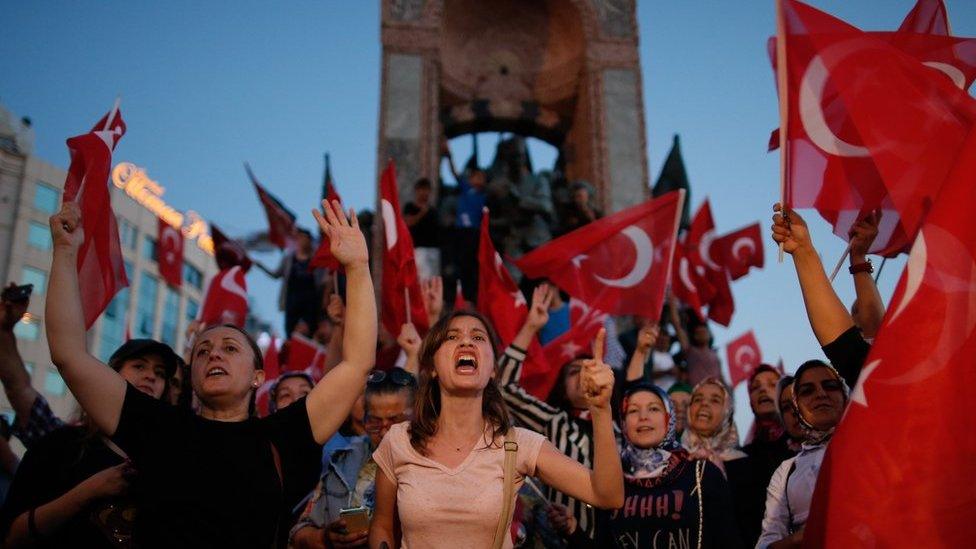Will Turkey's failed coup mean a return to the death penalty?
- Published
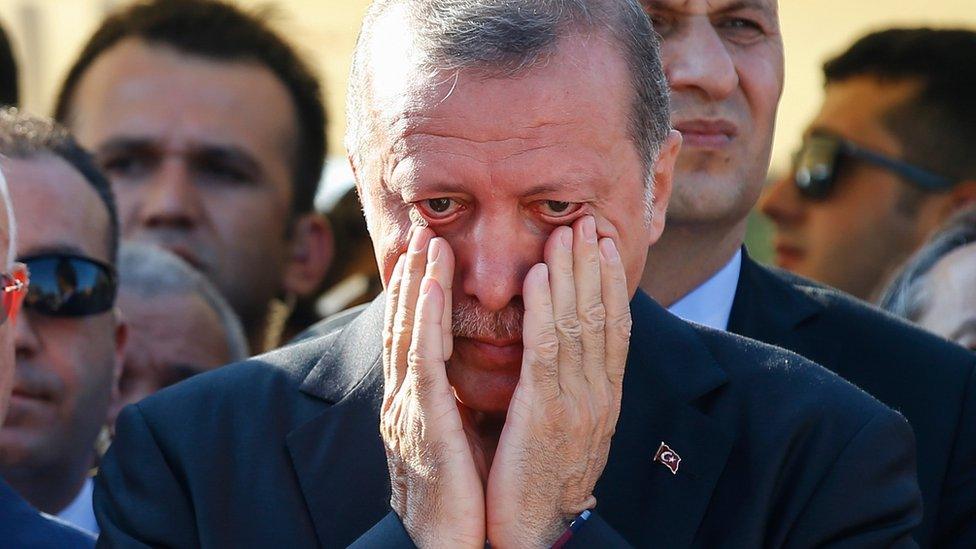
Turkey's president wept at a funeral on Sunday and said coup plotters should pay a price
At a funeral held in Istanbul of those killed during the coup attempt, President Recep Tayyip Erdogan was giving a speech.
He was interrupted by chants from the crowd. "We want the death penalty," they shouted repeatedly.
And President Erdogan heard them loud and clear.
"In democracies, people's demands cannot be set aside," he responded. "Those who attempt a coup must pay a price."
It had already been trending on Twitter for a day. The hashtag #idamistiyorum (I want the death penalty) was shared by thousands of people.
"Whoever put our soldiers against our policemen, for them I want death penalty," tweeted one supporter.
Others objected: "The death penalty is a crime against humanity. Couldn't you find something else to ask for?"
Foreign relations on a knife-edge
Turkey abolished the death penalty in 2004 as part of the reforms needed to enter accession negotiations to the EU. There has been no execution here since 1984.
The EU's foreign policy chief, Federica Mogherini, has warned the Turkish government not to take steps that would damage the constitutional order, saying no country could join the EU if it had the death penalty.
Why did the coup in Turkey fail?
And the message was the same across Europe: Austrian Foreign Minister, Sebastian Kurz, said reinstating capital punishment would be unacceptable while German government spokesman Steffen Seibert said it would put an end to EU accession talks.
But Prime Minister Binali Yildirim was adamant. "The people's demands are an order for us. We cannot ignore it," he said - while adding that it would be wrong to act in a hurry.
There is a lot at stake for both Turkey and the EU. A refugee deal reached earlier this year has all but halted the influx of migrants from the coast of western Turkey into Greece, while Turks themselves are eyeing the possibility of visa-free travel to Europe's border-free Schengen zone in return.
"EU-Turkey relations are already on a knife-edge. It doesn't seem likely that Turkey will bow against any demand coming from the EU. Brussels does not have a leverage over Ankara anymore," says Gun Kut, an academic in Bogazici University.
"But still, I don't think Turkey will reinstate the death penalty," he adds.
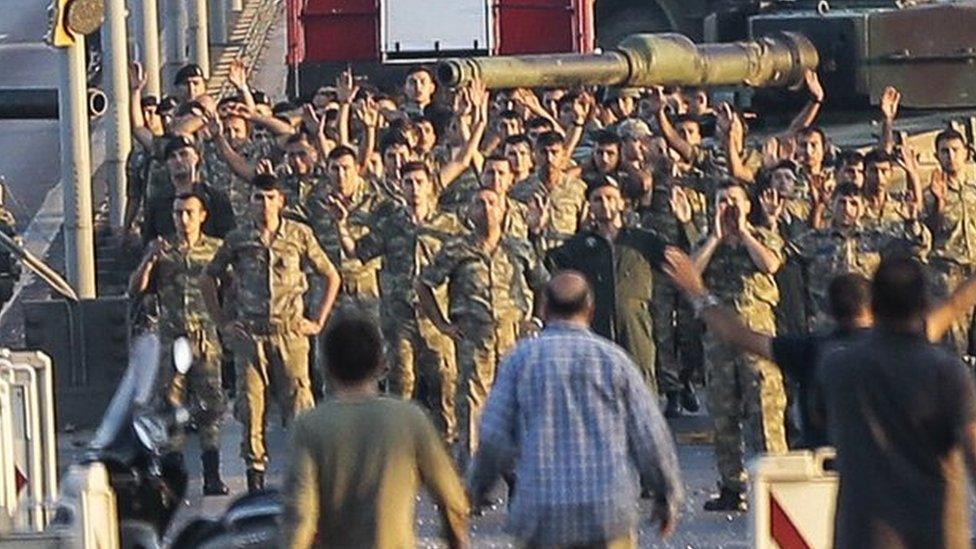
The number of arrests since the coup has stretched into the thousands
Turkey has been a signatory of the European Convention on Human Rights since 1954, which requires the abolition of the death penalty.
It is also a founding member of the Council of Europe - none of whose 47 members have the death penalty.
Could they execute coup plotters anyway?
"Turkey is not at war and the coup threat is over. So there is no valid excuse for Turkey to withdraw from its international obligations. Turkey should not go down that route," says Ibrahim Kaboglu, professor of international law in Marmara University.
And even if it is reinstated, he argues that the coup plotters would be legally exempt.
"Article 15 of our constitution states that even under the circumstances of war, martial law or state of emergency, offences and penalties cannot not be made retroactive," he says.
In Turkey, reinstating the death penalty would require a change in the constitution, which would need the approval of 367 MPs in the parliament.
And President Erdogan said on Monday he would approve the change if parliament backed it and declared the attempted coup a "clear crime of treason".
However the main opposition CHP party and the pro-Kurdish HDP have already stated they would not support it.
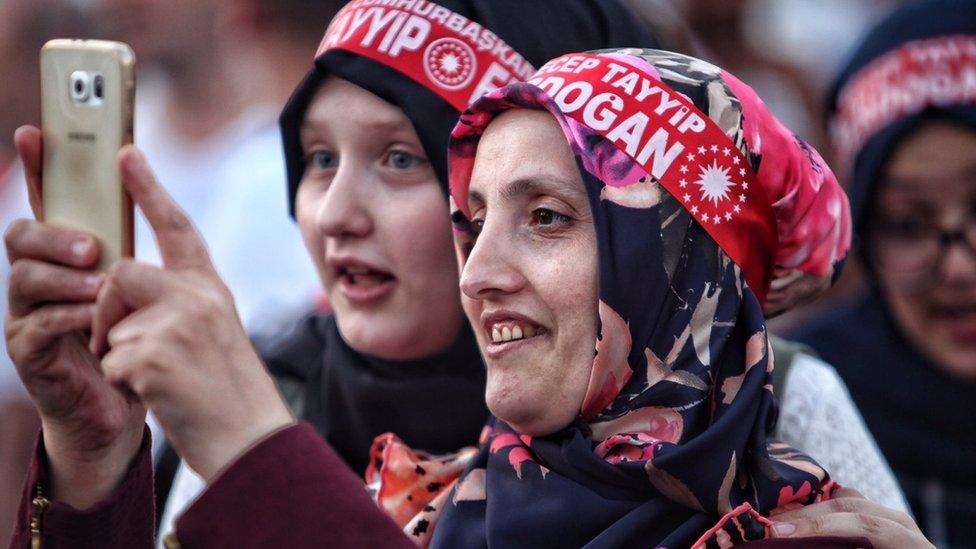
Thousands of people have taken to the streets to show support for President Erdogan
"We can understand the anger and frustration of the public against the bloody coup attempt. People have the right to voice their rage. But politicians should act responsibly," says CHP MP Bulent Tezcan.
His party says the response to the failed coup should be conducted within the rule of law and the plotters should face trial accordingly.
Added difficulty for Erdogan
And there is another problem for the government.
President Erdogan has made repeated calls to the US government to extradite US-based Islamist cleric Fethullah Gulen, whose movement he accuses of supporting the coup. Mr Gulen adamantly denies it.
And Ankara also expects the extradition of eight coup plotters who fled to Greece to apply for asylum.
"If the death penalty is reintroduced, the US or the EU will reject any extradition, arguing if they do these people they might face harsh consequences," says Ibrahim Kaboglu.
And he says the judiciary is not immune to error. Not that long ago, high-ranking generals were jailed for several years for plotting coups, only to be acquitted later on.
"If the death penalty hadn't been abolished all those top generals would have faced execution," he says. "What if the judiciary makes a mistake?"
- Published16 July 2016
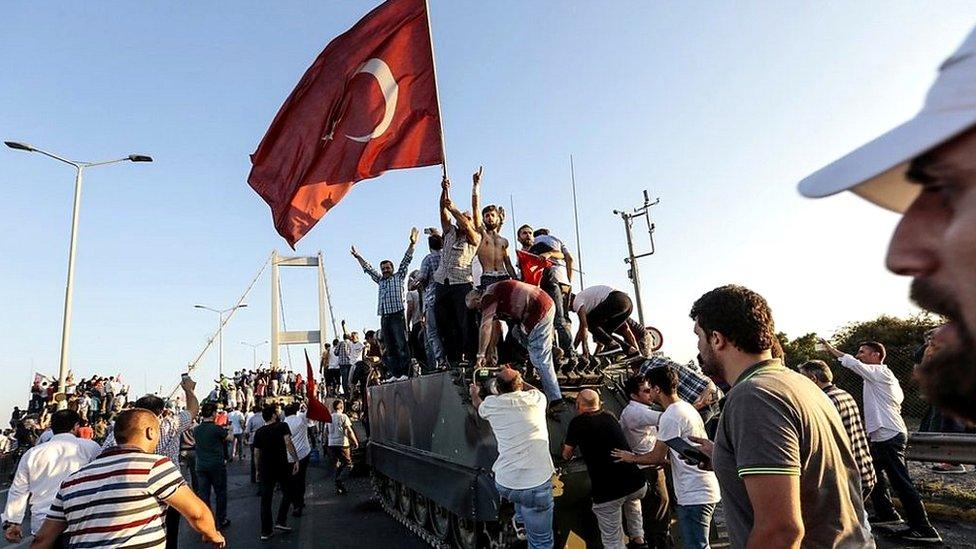
- Published16 July 2016
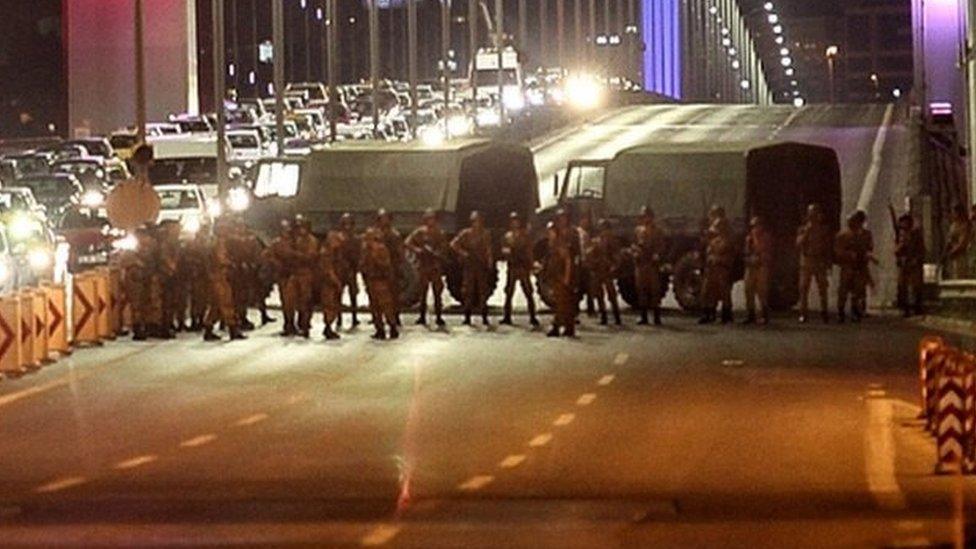
- Published18 July 2016

- Published18 July 2016

- Published16 July 2016
